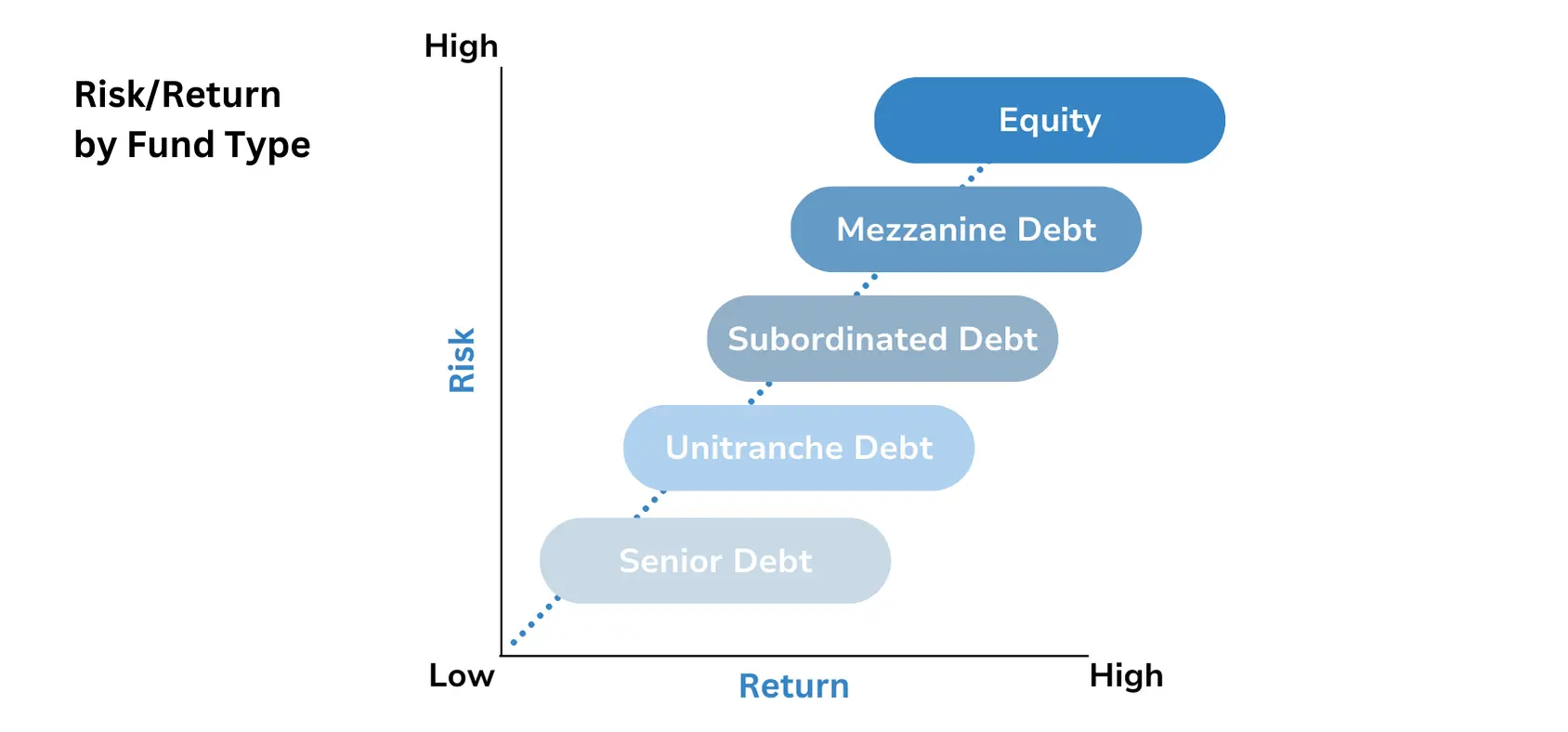5 Key Actions To Secure A Role In The Private Credit Boom

Table of Contents
Network Strategically Within the Private Credit Industry
The private credit industry, like many others, thrives on relationships. Building a strong network is crucial for securing a role in this competitive market. This involves targeted efforts to connect with key players and immerse yourself in the industry's ecosystem.
Target Key Players
Don't just randomly send connection requests. Research specific firms and individuals known for their success in private credit. Identify firms with a strong track record and a culture that aligns with your career aspirations.
- Attend industry conferences: SuperReturn, PEI's conferences, and smaller, niche events are excellent places to network. These events offer unparalleled opportunities to meet leading figures in private debt and alternative investments.
- Join relevant professional organizations: The CFA Institute and the Association of Investment Professionals in Management (AIPM) provide access to a network of professionals and valuable industry insights.
- Leverage LinkedIn effectively: Go beyond simply connecting; engage with industry leaders' posts, share relevant articles, and participate in group discussions. Craft a professional profile that showcases your skills and experience in the private credit space.
Develop In-Demand Skills for Private Credit Roles
Private credit roles demand a specific skill set. Mastering financial modeling, understanding legal and regulatory aspects, and developing strong analytical abilities are essential for success.
Master Financial Modeling & Analysis
Proficiency in financial modeling is paramount. You need to be comfortable with various valuation techniques, including discounted cash flow (DCF) analysis, leveraged buyout (LBO) modeling, and credit analysis. Understanding the nuances of these models is crucial for evaluating potential investments.
Understand Legal & Regulatory Aspects
A foundational understanding of the legal and regulatory frameworks governing private credit transactions is non-negotiable. This includes compliance with regulations surrounding lending, securitization, and other relevant areas.
- Obtain relevant certifications: The CFA charter and the CAIA charter are highly regarded in the finance industry and demonstrate a commitment to professional development. Consider pursuing these if you don't already have them.
- Take online courses or pursue further education: Many online platforms offer courses in private equity, finance, and law, allowing you to develop specialized knowledge.
- Develop strong skills in data analysis and financial modeling software: Mastering Excel, Bloomberg Terminal, and other relevant software is crucial for performing detailed financial analysis.
Craft a Compelling Resume & Cover Letter Tailored to Private Credit
Your resume and cover letter are your first impression. They need to clearly demonstrate your suitability for roles in private credit.
Highlight Relevant Experience
Emphasize experience in financial analysis, credit underwriting, portfolio management, or legal work directly related to private debt. Quantify your achievements whenever possible, showcasing tangible results.
Quantify Achievements
Instead of simply stating your responsibilities, quantify your achievements using numbers and data. For example, instead of saying "Improved efficiency," say "Improved efficiency by 15% through process optimization, resulting in a $X cost savings."
- Customize your resume and cover letter: Don't use a generic template. Tailor each application to the specific job description and the firm's culture.
- Use keywords: Incorporate keywords from the job description throughout your resume and cover letter.
- Showcase your understanding of the private credit market: Demonstrate your awareness of current market trends and challenges.
Prepare for Behavioral & Technical Interviews
Interview preparation is critical. You'll face both behavioral and technical questions designed to assess your skills, experience, and understanding of the private credit landscape.
Practice Common Interview Questions
Prepare for common behavioral interview questions using the STAR method (Situation, Task, Action, Result). Practice articulating your experiences and highlighting your accomplishments. Prepare for technical questions focusing on financial modeling, valuation techniques, and credit analysis.
Demonstrate Your Understanding of Private Credit
Demonstrate a solid grasp of recent trends and challenges in the private credit market, such as interest rate fluctuations, credit spreads, and regulatory changes. Show your interest in this space by staying up-to-date on current affairs within the industry.
- Research the firm and interviewer: Thoroughly research the firm's investment strategy and the interviewer's background.
- Prepare thoughtful questions to ask: Asking insightful questions shows your genuine interest and engagement.
Leverage Your Existing Network and Seek Mentorship
Networking and mentorship are invaluable. Reach out to your existing contacts and seek guidance from those already working in private credit.
Seek Guidance from Professionals
Utilize LinkedIn to connect with mentors who can offer advice and insights into the private credit industry. Inform your network of your career goals and be open to opportunities for informational interviews.
Attend Industry Events to Expand Your Network
Use industry conferences and networking events as opportunities to connect with professionals and learn from their experiences. Follow up after these events and maintain contact with valuable connections.
- Actively seek out mentorship opportunities: Don't be afraid to reach out and ask for guidance.
- Leverage informational interviews: These informal conversations can provide valuable insights and broaden your understanding of the industry.
Conclusion:
Securing a role in the booming private credit market requires a strategic and proactive approach. By strategically networking, developing in-demand skills, crafting a compelling application, preparing for interviews, and leveraging your network, you significantly increase your chances of success. Don’t delay – take action now to capitalize on this exciting opportunity and launch your career in the dynamic world of private credit. Start building your network and honing your skills today to take advantage of the private credit boom!

Featured Posts
-
 Murder Conviction After Deadly Teen Rock Throwing Incident
Apr 29, 2025
Murder Conviction After Deadly Teen Rock Throwing Incident
Apr 29, 2025 -
 Can Trumps Tax Cuts Survive Internal Republican Opposition
Apr 29, 2025
Can Trumps Tax Cuts Survive Internal Republican Opposition
Apr 29, 2025 -
 Seven Injured In North Carolina University Shooting One Fatality Confirmed
Apr 29, 2025
Seven Injured In North Carolina University Shooting One Fatality Confirmed
Apr 29, 2025 -
 Europes Security Concerns Amidst Recent Russian Military Actions
Apr 29, 2025
Europes Security Concerns Amidst Recent Russian Military Actions
Apr 29, 2025 -
 Ftc To Appeal Microsoft Activision Merger Decision
Apr 29, 2025
Ftc To Appeal Microsoft Activision Merger Decision
Apr 29, 2025
Latest Posts
-
 Alan Cummings Favorite Scottish Childhood Pastime Revealed By Cnn
Apr 29, 2025
Alan Cummings Favorite Scottish Childhood Pastime Revealed By Cnn
Apr 29, 2025 -
 Vancouver Festival Hit By Car Crash Injuries Reported After Vehicle Strikes Crowd
Apr 29, 2025
Vancouver Festival Hit By Car Crash Injuries Reported After Vehicle Strikes Crowd
Apr 29, 2025 -
 Israeli Military Strikes Southern Beirut Triggers Mass Evacuation
Apr 29, 2025
Israeli Military Strikes Southern Beirut Triggers Mass Evacuation
Apr 29, 2025 -
 Vancouver Festival Tragedy Car Rams Crowd Leaving Many Injured
Apr 29, 2025
Vancouver Festival Tragedy Car Rams Crowd Leaving Many Injured
Apr 29, 2025 -
 Southern Beirut Hit By Israeli Airstrike Residents Urged To Evacuate
Apr 29, 2025
Southern Beirut Hit By Israeli Airstrike Residents Urged To Evacuate
Apr 29, 2025
